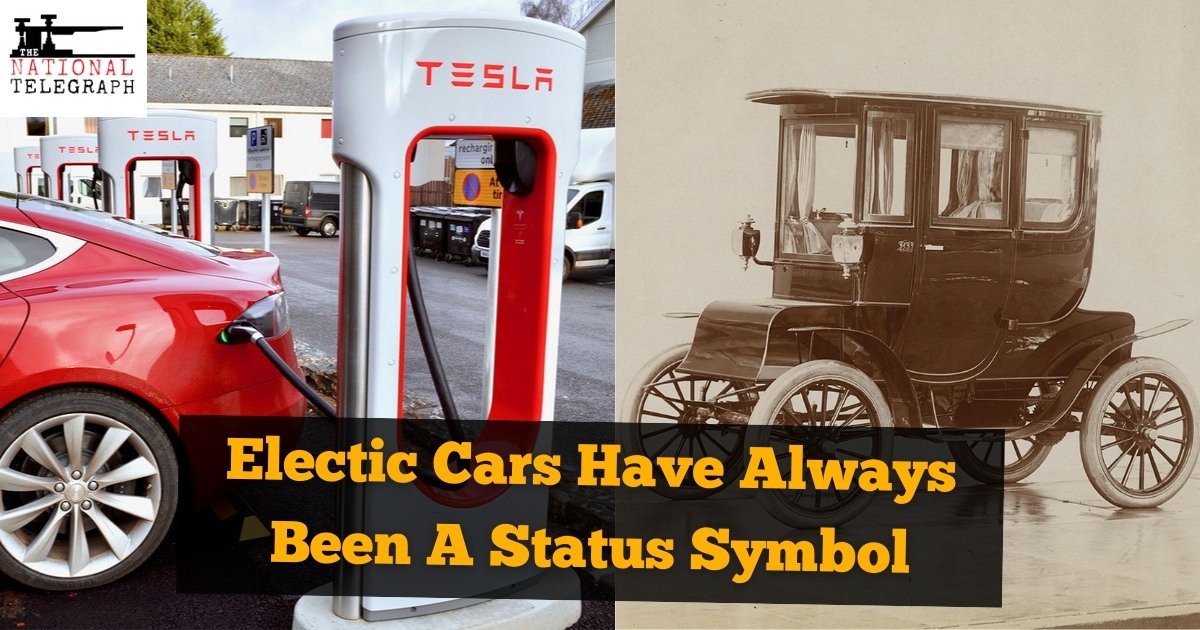Written By Neil McKenzie-Sutter, Posted on September 14, 2022

We need to deconstruct and dismantle the myth implied by governments and other interested parties that electric cars are somehow destined to be 100% of vehicles in the future. If not stated openly, it’s certainly implied by these actors that it’s possible to replace all fossil fuel energy generation, and it’s just not. These governments et al are chasing unicorns if they think they can accomplish this.
For one thing, it should be your choice whatever vehicle you purchase, or whether you want one at all. Electrically or gasoline powered, you should be left alone in purchasing the best vehicle for your needs, and governments or politically-left skewed environmentalist groups should have no influence in that.
Moving on, however, the idea that battery-powered cars are some futuristic technology is completely bogus. While it was close, the first modern approximation of the car was showcased in Paris in 1881 by inventor Gustov Trouve, while the first gasoline-powered car was pioneered by Carl Benz in 1886, so in fact, electric cars predate gasoline-powered ones.
And for decades even after this, gasoline-powered cars lagged acceptance over other engine types: at the turn of the 20th century, steam-powered cars were in most widespread use in the United States at 40%, with electrically powered cars in a close second place at 38%. Gasoline-powered vehicles came a distant third; only 22% of the market share at this time.
In the late 19th – early 20th centuries it’s crucial to note that the European automobile market was more significant than America’s. At the turn of the 20th century, France was actually the country with the most cars bought and produced in the world, and other Western European governments were investing heavily in electric car infrastructure at this same time.
Private motor vehicles were a novel invention, but at this time were a luxury only the wealthy could afford. The upper class of course resided in cities, making electric cars totally practical as this is where electric car owners would have access to built-up electrical grids.
Another obstacle early private automobile owners encountered that hindered adoption was the road systems of the time. The only areas these early cars were reliable, again, were in built-up urban areas; again, the perfect match for an electric car’s battery range.
This era of dominance by electric cars lasted from the 1880s to the 1910s when gasoline took the lead. Electric cars lingered on the scene into the 1930s, but it is strange and fair to observe that these vehicles essentially disappeared for decades.
There were a few reasons for the decline of electric cars, with the main one being the incredible range gasoline-consuming vehicles allowed for, and in this regard were much more versatile in their use case for middle and lower-class drivers.
Again, however; despite electric cars coming back in vogue, it really should be left to the individual buyer as to which vehicle suits their needs.
Governments and other actors in modern times can’t seem to help themselves and apparently must insert themselves into the process by offering electric/hybrid vehicle purchase incentives, here in Canada for a few years already with the United States under Biden following suit recently.
While the reaction of most simpletons will be that the government and other actors are doing the right thing for the environment, the future of humanity, etc., past the surface level virtue signaling, we have to ask where the money is coming from to allow for these incentives.
The answer is this money is coming from taxes, so what we’re seeing as these incentives and tax rebates is a redirection of wealth towards the upper class, urbanites, away from the working and middle class, who are unlikely to be able to take advantage of an electric car; as these vehicles are generally overpriced and aren’t that useful for much more than commuting.
At the same time, too, here in Canada the government has begun taxing the purchase of light-medium duty pickup trucks, making the playing field even more unfair and is an even more detailed and obvious instance of class warfare by the elite against the working class.
As ever, it’s important to call out this kind of hypocrisy and ugly class warfare as we see it. The war on the working class is real, as evidenced by the Trudeau regime’s completely disproportionate police crackdown on the Freedom Convoy protests earlier this year. The National Telegraph will continue to catalog these offenses by the regime; subtle or otherwise.
Hey there You have done a fantastic job I will certainly digg it and personally recommend to my friends Im…